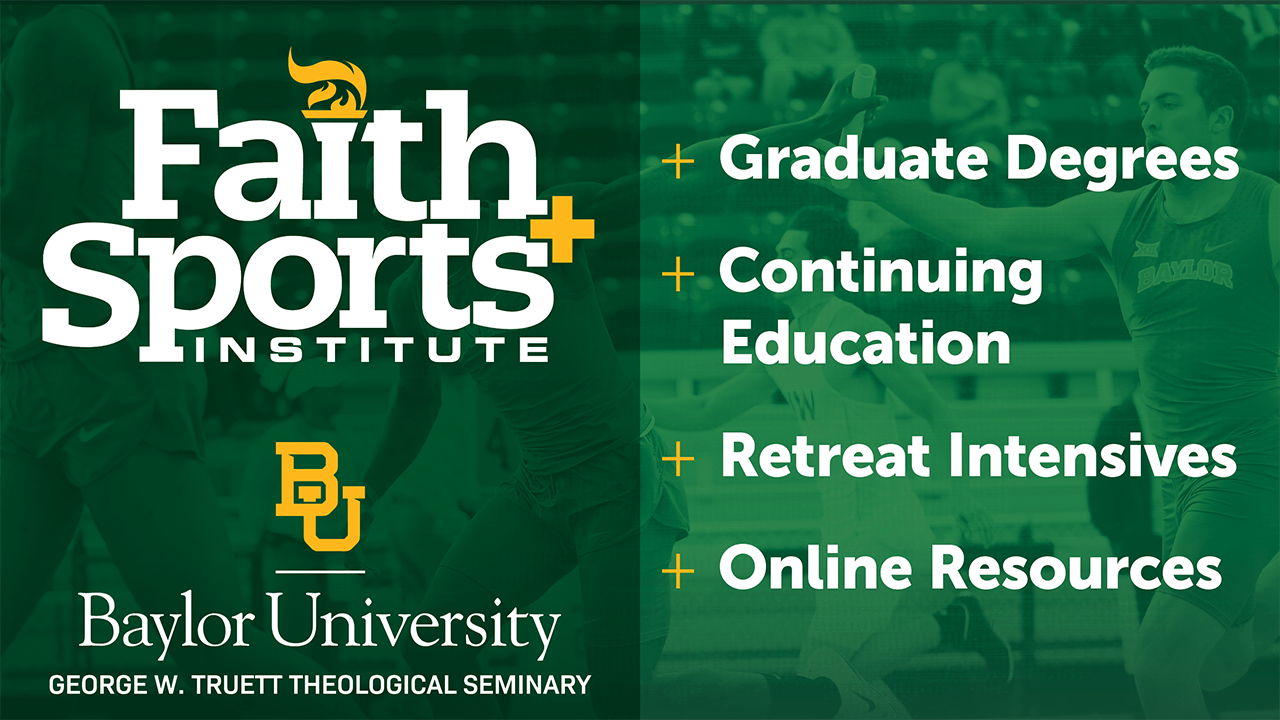Editor’s note: To help Christian sportspeople navigate these uncertain times, we will be publishing a series of posts focused on what it looks like to “Run The Race Well” in a time of coronavirus and quarantine. We will be getting contributions from a variety of perspectives: theologians, philosophers, athletes, coaches, mental health professionals, seminary students, and more. This post comes from Brian Gamel, a New Testament scholar and a Postdoctoral Research Fellow with the Truett Sports Ministry Program (beginning June 2020).
Brian Gamel
This Sunday churches around the world will celebrate Easter. They will sing hymns about Jesus defeating death and they will exclaim to one another “Christ is risen!” They will revel in the victory of God in the memorial of the resurrection. And yet on Monday morning the dead will pile up in New York. The global toll of infected will increase even further. And we will all remain socially isolated from each other, with no obvious end in sight.
This certainly does not feel like Easter to me.
But maybe it should. It’s easy in our liturgical celebrations to draw a sharp distinction in our tone between Good Friday and Easter morning. Friday is for hushed voices, bowed heads, tears, and sadness. Sunday is for rejoicing and celebration. Yet this is not what Easter looked like for those followers of Jesus who had just witnessed his horrific execution and were reeling from the sudden and tragic end to his life’s work.
On the same day that the women come to the tomb to discover angels announcing the resurrection of Jesus, two friends took a trip to a suburb of Jerusalem. They had heard the news already. They knew what the women were saying. But the world seemed to be filled with the same grief and heartache that it had always known.
“Moreover, some women of our group astounded us. They were at the tomb early this morning, and when they did not find his body there, they came back and told us that they had indeed seen a vision of angels who said that he was alive. Some of those who were with us went to the tomb and found it just as the women had said; but they did not see him.” (Luke 24:22-24)
This should have been good news; incredible news! Angels have been spotted! A victory is announced! The tomb is empty! How could this have failed to inspire these weary friends of Jesus?
Because despite hearing about all of these amazing reports “they did not see him.”
In the midst of so much pain and turmoil, isolation and loneliness, death and job loss, I have a hard time seeing Jesus. Singing “Christ the Lord is Risen Today” will not end the pandemic. Declaring “He is Risen Indeed” will not bring back 16 million lost jobs. The world seems to go on much as it did before, unaware of the fact that Christ has been raised from the dead.
And yet…
These two friends, who share their grief and heartache on the road to Emmaus, are sharing it with Jesus. The friends who bemoan these tales that seem like “idle words” are complaining to Jesus. For on their journey, in the midst of an otherwise normal day, Jesus walks with them. Hears them. Listens to them share their grief. “While they were talking and discussing, Jesus himself came near and went with them, but their eyes were kept from recognizing him” (24:15-16).
The Jesus whose resurrection is announced by angels and whose tomb lies empty but who these friends cannot see is the same Jesus who walks beside them in their sadness and disappointment.
And so I find great solace in this story, which is also an Easter story. Because on Monday morning, after the celebration has ended and I am greeted by more sorrow and loneliness and pain, I know that Jesus walks beside me precisely in those experiences. That even as I complain about not seeing Jesus, I know Jesus hears my complaint about not seeing him. And that just when I least expect it, in something as commonplace as sharing a meal, my eyes will be opened and I will see and recognize that Jesus has been with me the entire time.
For Christ really is risen, indeed.
About the author: Brian Gamel is an educator and scholar with an M.Div. from Duke University and a Ph.D. in New Testament from Baylor University. His first book, an academic study of the centurion’s confession in Mark 15, was published with T&T Clark. Brian will be serving as the Postdoctoral Research Fellow with the Truett Sports Ministry Program beginning in June 2020. He has three amazing children. In his free time he runs, reads, and pretends to be learning how to play the guitar.







